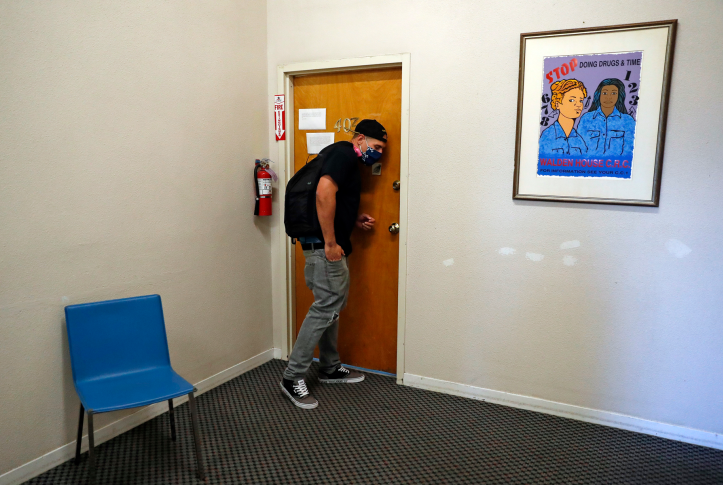More than 78 million Americans — nearly one of four — are insured by Medicaid. In 2020, an estimated 40 percent of the nonelderly adult Medicaid population experienced a substance use or mental health disorder. Consequently, expanding Medicaid coverage can improve health outcomes for people with behavioral health care needs. The Affordable Care Act’s Medicaid expansion, for instance, improved access to care for people with depression and other psychological distress.
In the recent “minibus” appropriations package for 2024 (H.R. 4366), Congress included several behavioral health reforms, largely for Medicaid beneficiaries and individuals who receive care in community-based settings, with hopes that these reforms can increase the availability of behavioral health services for Medicaid beneficiaries and improve health outcomes.
Bolstering the Behavioral Health Workforce
In the package, Congress instructed the U.S. Department of Health and Human Services (HHS) to issue guidance to states regarding opportunities to improve the availability and provision of mental health and substance use disorder services. Congress also made it easier for states to implement Certified Community Behavioral Health Clinic (CCBHC) services, which have been shown to alleviate worker shortages and increase retention and satisfaction. CCBHCs work to provide comprehensive mental health and substance use disorder services, regardless of an individual’s ability to pay. Previously, certain states were authorized to operate CCBHC demonstration programs, but the new legislation establishes these services as an optional Medicaid benefit in all states.
Improving Access to Treatment for Opioid Use Disorder and Mental Health
Since Medicaid’s enactment, states have been prohibited from paying for care in Institutions for Mental Disease (IMD) settings (i.e., psychiatric hospitals or residential treatment facilities that have more than 16 beds). Congress had previously allowed states to apply for a waiver to provide Medicaid coverage for short-term stays in psychiatric hospitals. The new health care package permanently allows states to provide Medicaid-covered services to individuals who reside in IMDs, regardless of the size of the facility, if stays do not exceed 30 days per 12-month period and the facility and state meet certain federal standards. The new legislation also solidifies coverage for medication-assisted treatment, permanently requiring that state Medicaid programs cover all forms of medications for the treatment of opioid use disorder as well as coverage for counseling services and behavioral therapy, which are key elements of expanding access to effective treatment.
Improving Data and Information
The health care package aims to increase available data on Medicaid beneficiaries’ substance use disorder and mental health conditions. Under the law, HHS is required to analyze and publish information on behavioral health services provided to Medicaid and Children’s Health Insurance Program (CHIP) enrollees each year. New requirements also instruct states to monitor the prescribing of antipsychotic medications to children, including children in foster care, and adults residing in institutional care settings or receiving home and community-based services, to identify potentially abusive prescribing practices of antipsychotics.
Stabilizing Access to Health Coverage and Care for Individuals Entering and Exiting Incarceration
Another provision creates more stable access to Medicaid coverage for individuals entering and exiting incarceration. Previously, states could terminate Medicaid coverage when an individual became incarcerated, and many did. Under the new health package, Medicaid coverage can be paused but not terminated during incarceration. By pausing it, coverage can readily be reactivated when a person is released. The health package also authorizes grants to help states put systems in place that promote continuous coverage and care for incarcerated individuals who are eligible for Medicaid or CHIP. These changes should increase the number of individuals who remain insured and have access to services and supports that are known to help them stay healthy and avoid reincarceration once they return to the community.
Funding the Health Care System
The health package increases funding for community health centers by $270 million, a 10 percent bump for the part of the health care system that provides care to more than 30 million individuals. The package also increases the National Health Service Corps by 17 percent ($35 million) and increases funding for the Teaching Health Center Graduate Medical Education Program by more than 50 percent ($35 million). These core health care programs are reauthorized through the end of 2024.
Collectively, these provisions will help increase access to mental health and substance use disorder services for millions of Americans. Multiple regulations that CMS finalized this week also have the potential to further strengthen Medicaid enrollees’ access to quality services. As 2024 proceeds, the last major opportunity for health reform is likely during the lame duck session after the November elections. At that time, we may see Congress reauthorize the Substance Use Disorder Prevention that Promotes Opioid Recovery and Treatment for Patients and Communities (SUPPORT) Act or advance the Senate’s Better Mental Health Care, Lower-Cost Drugs, and Extenders Act (S. 3430), if these are not enacted sooner.





